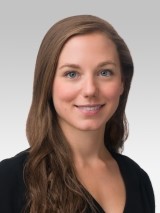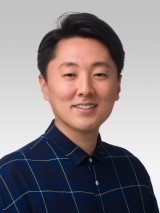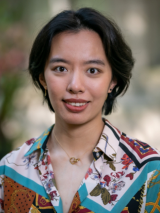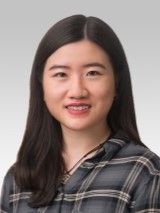David W. Cugell & Christina Enroth-Cugell Fellowship Program
David W. Cugell, MD, founded the Division of Pulmonary & Critical Care in the Department of Medicine at Northwestern University Feinberg School of Medicine in 1965 and served as its chief until 1982. His research on lung mechanics advanced our understanding of pulmonary physiology and informed the treatment of lung diseases.
Under his leadership, the division grew and was consistently recognized for its excellence in research and patient care. Cugell mentored numerous physicians and scientists, many of whom went on to successful careers in academia and medicine. He was passionate about helping young physician-scientists and increasing the pool of investigators studying lung diseases.
Cugell was the longest-serving faculty member of Northwestern University Feinberg School of Medicine until his retirement in 2012. In 2018, the David W. Cugell & Christina Enroth-Cugell Fellowship Program was established to provide funding for predoctoral candidates and MD and PhD scientists pursuing careers in pulmonary research.
About the Fellowship
Eligibility
Applicants are eligible to apply for a Cugell Fellowship if, at the time of application, they are:
- Scientists holding a relevant degree (e.g., BS, MS, MD, PhD, ScD, DVM) embarking on a career in basic, clinical or translational science related to Pulmonary & Critical Care Medicine.
- Graduate students enrolled in a graduate program (e.g., DGP, IBiS, BME); students should have completed their first year of graduate school and selected their mentor/laboratory.
- A citizen or permanent resident of the U.S. or Canada or have a permanent residency application on file at the time of application with the U.S. or Canadian Immigration Services. Additionally, applicants with an approved Northwestern University–sponsored U.S. visa (e.g., J1, F1, H1B) are eligible to apply.
- A PhD or other non-MD scientist no more than seven years beyond completion of their doctoral degree or an MD scientist no more than seven years beyond clinical training (i.e., residency, internship or clinical fellowship) at the time of application. Candidates with more than seven years of postdoctoral training require approval for continued training from the director of the Cugell Fellowship Program.
- Individuals are not eligible for a Cugell Fellowship if, at the time of application, they are or have been a principal investigator on an NIH K or R series research award or other nationally competitive research award at the comparable level.
- Cugell Fellows are required to have at least 75 percent of their time available for research.
Applications will not be considered for funding if either the mentor or the fellow has a relationship with the tobacco industry, as described in the American Thoracic Society (ATS) guidelines. If a current Cugell Fellow or mentor enters a relationship with the tobacco industry, the Cugell Fellowship support will be immediately terminated.
Evaluation Criteria
The appraisal of a Cugell Fellowship application is based on the following considerations:
- The qualifications and career trajectory of the candidate.
- An assessment of the Mentor's credentials and the resources for research training.
- The scientific merits of the research project proposal.
Expectations
Research Expectations
The fellowship supports research into the basic mechanisms of and cures for lung diseases. Research must be done in the laboratory of a Division of Pulmonary & Critical Care member or a collaborating laboratory. The fellow or the fellow's mentor must have an appointment in the Division of Pulmonary & Critical Care.
A progress report must be submitted annually. Funds for the subsequent year will not be provided until the Cugell Fellowship Committee receives and approves the progress report.
Mentor Expectations
The mentor will accept responsibility for and supervise the approved research project and agree that the research will be conducted in compliance with applicable federal, state, local and institutional laws and regulations governing the ethical conduct of research.
The mentor will ensure that the Fellow has at least 75 percent of their time available for research.
Fellowship Award
Fellowship support will be made on a yearly basis.
- Stipend:
- Predoctoral trainees will be awarded a stipend and tuition for a full year. The stipend will be based on that set by the Graduate School at Northwestern University. Tuition for PhD students in their fifth quarter of study or beyond will be at the same rate for advanced graduate students.
- Postdoctoral trainees will be awarded a stipend based on that set by federally funded NRSA training grants.
- Awardees may apply for continuing support for up to three years.
- Allowable costs are restricted to the Fellow's salary plus fringe benefits.
- Approval for any other costs must be requested in writing by the mentor and fellow and approved by the Cugell Fellowship Program.
- Indirect costs and equipment purchases are not allowed.
- The fellow must notify their Mentor, and in turn, the Cugell Fellowship Office, of any significant new competitive awards that are received during the period of the Cugell Fellowship.
- The fellow is required to acknowledge the sponsorship of the Cugell Fellowship Program on all publications resulting from this award.
Application
Please submit the following to Sean Campbell:
- Personal statement (goals and commitment to a career in research, one page)
- Curriculum vitae with a list of publications or NIH Biosketch
- Brief summary of prior research experience (one to two paragraphs)
- Summary of proposed research (limit one page)
- Biosketch of the Mentor
Deadline
The application deadline is March 30. Late applications will not be accepted.
Current Fellows

Claudie Bosc, PhD
PhD: University of Toulouse III, France
Mentor: Navdeep S. Chandel, PhD
Investigates the crucial role of the mitochondrial electron transport chain and TCA cycle, specifically the MDH2 enzyme, in supporting lung tumor growth in a mouse model.

Atsushi Suzuki, MD, PhD
MD: Nagoya City University School of Medicine, Aichi, Japan
PhD: Nagoya University Graduate School of Medicine, Aichi, Japan
Mentor: Alexander V. Misharin, MD, PhD
Identifying a novel therapeutic target for pulmonary fibrosis by investigating a specific molecule in monocyte-derived alveolar macrophages and its role in their survival via mitochondrial metabolism in a mouse model.

Qianli (Iris) Liu
Mentor: Benjamin D. Singer, MD
Aims to develop a new method (RREM-seq) for analyzing DNA methylation in low-input lung samples from severe pneumonia patients to determine if Treg cell methylation patterns can predict clinical outcomes.

Karen Lou
Mentor: Karen M. Ridge, PhD
Investigates the role of extracellular dsDNA sensing in alveolar macrophages and the function of Treg-produced amphiregulin in fibroblast differentiation during the progression of idiopathic pulmonary fibrosis using a mouse model.